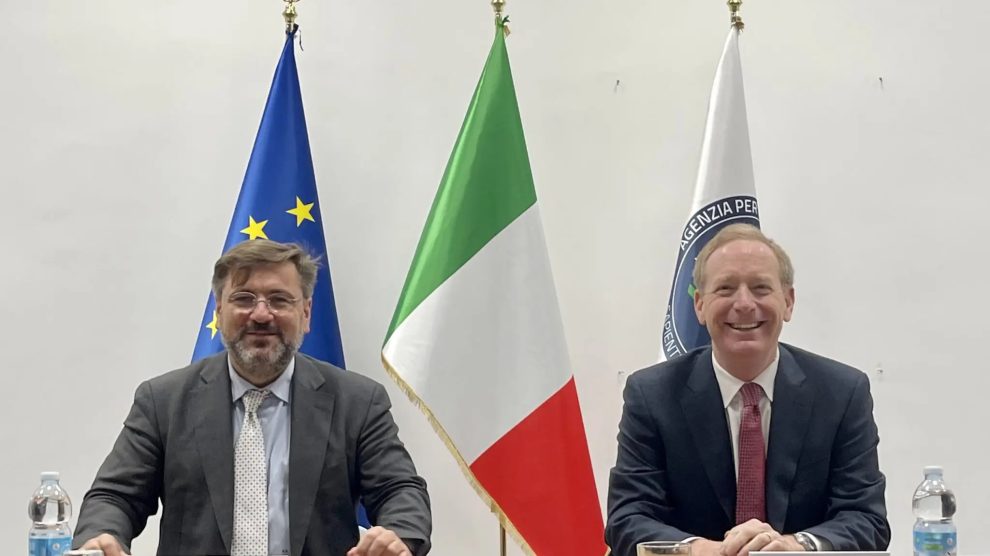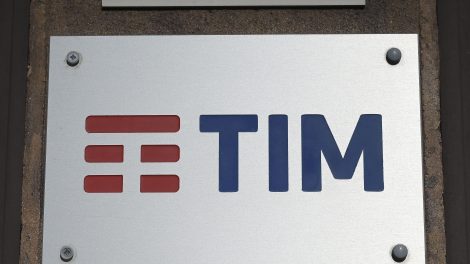The Microsoft-NCA entente. On Thursday, the United States-based tech behemoth announced a new partnership with Italy’s National Cybersecurity Agency. While in Rome, Microsoft’s President Brad Smith met with Director-General Roberto Baldoni, to discuss how to secure Italy’s public and private organisations and promote the dissemination of cybersecurity skills.
- This partnership also aims to set up a collaborative framework geared towards preventive action and mitigating risks related to the rise of cybercrime.
- Additionally, parties discussed the possibility of developing a training programme to disseminate cybersecurity skills – with a special focus on public administration, SMEs and schools.
Structural cooperation. The deal marked the ACN’s entry into the Microsoft Government Security Programme, whereby the tech company shares resources and expertise with over 90 authorities and security agencies from more than 45 countries around the world, to increase their awareness of cyber threats and exploits and the value of tools that can protect organisations and citizens.
- Microsoft’s Government Security Program is designed to offer participating entities adequate security information and resources to deal with contemporary cyber threats. Participating organisations may take controlled peeks into Microsoft’s source code and gain access to five globally distributed Transparency Centers located in Belgium, Brazil, China, Singapore and the US.
Smith discusses AI with the Pope. Later in the day, Microsoft’s President made his way to the Vatican City – along with Dario Gil, global VP at IBM, and Maximo Torero Cullen, Chief Economist at FAO, as well as Rabbi Eliezer Simha Weisz and Sheikh Abdallah bin Bayyah – to greet Pope Francis and partake in a panel on artificial intelligence.
- The head of the Church urged the tech officials to put technology at the “service of the common good […] Fraternity among all is the condition for technological development to be at the service of justice and peace everywhere in the world.”
- Noting how innovation in the field of AI will increasingly impact human activity, and even human decision-making, Francis encouraged them to take algoretics – i.e. ethical reflection on the use of algorithms – into account both in public debate and the development of technical solutions.”
- He also warned against algorithmic discrimination at the expense of the most fragile and excluded, such as asylum seekers. “The decision on the life and destiny of a human being should not be entrusted to an algorithm,” he said.





